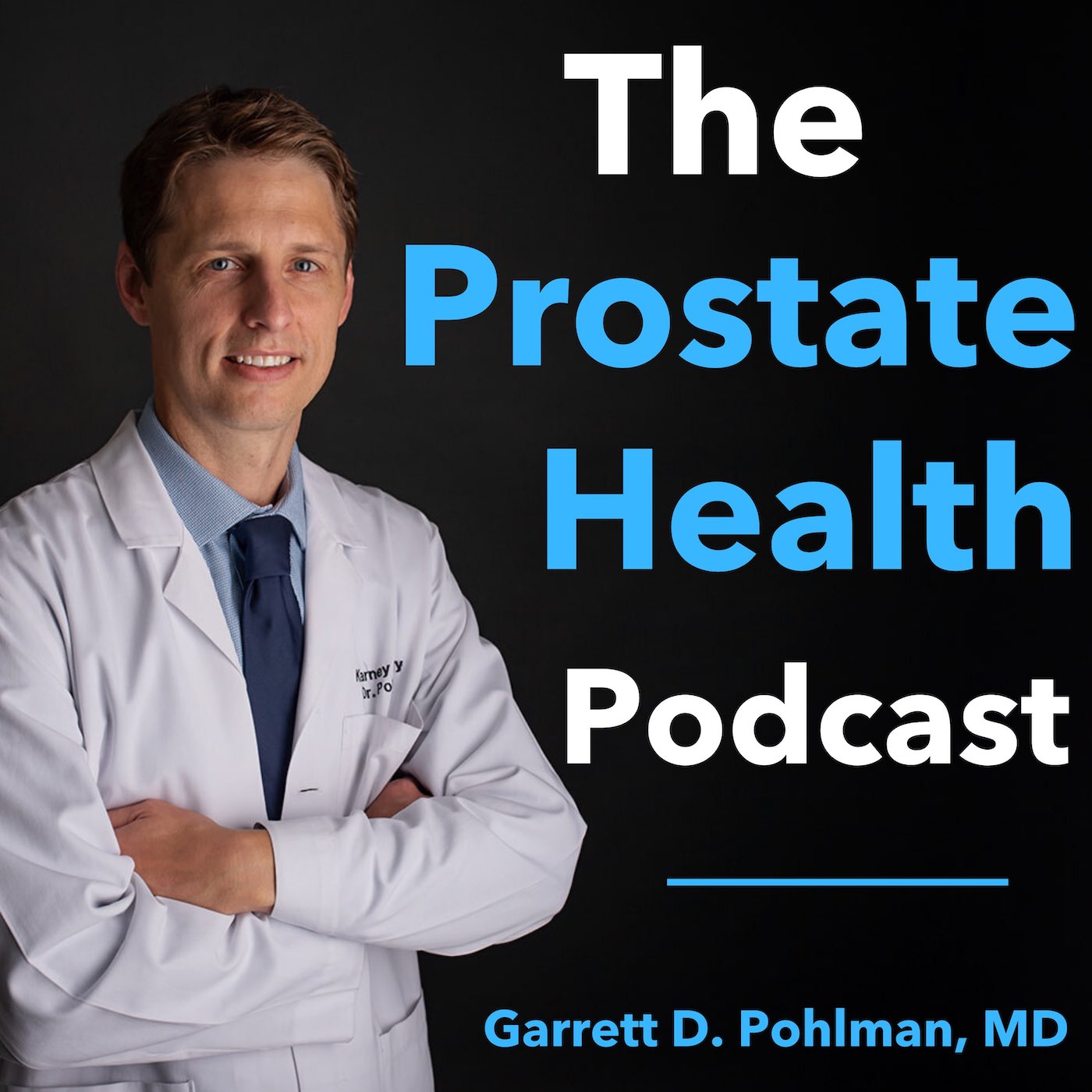Meet Dr. Pohlman
I am a board-certified Urologist still actively practicing in a busy private Urology group in the Midwest. Every day I am helping men in diagnosing and managing their prostate issues. Since finishing Urology residency training in 2013, I have already treated over 4,000 men with various prostate conditions.
Welcome to The Prostate Health Podcast
The Prostate Health Podcast is aimed at giving men the tools they need to be proactive about their healthcare, taking the initiative to maintain their health and to be ready and educated to manage the problems that may come along the way.
Many men refuse to go to the doctor regularly typically waiting to see a medical provider until their symptoms are severe. At times, particularly for many prostate disorders, waiting too long may result in negative outcomes. In the case of benign enlargement of the prostate, potentially suffering irreversible damage to the bladder when left untreated for a period of time. And for prostate cancer screening, potentially missing a window of cure if prostate cancer is not diagnosed early on.
Listen to the show:
71: Extending Survival with a New Treatment for Men with Advanced Prostate Cancer – A. Oliver Sartor, MD
We are happy to have an international expert in the arena of the treatment of advanced prostate cancer joining us today. We are excited to talk to him about a new treatment that is extending the survival of men with advanced prostate cancer.
Dr. Oliver Sartor is an internationally recognized expert in prostate cancer. He is currently the Assistant Dean for Oncology at Tulane University’s School of Medicine, Medical Director of the Tulane Cancer Center, and the Ward Professor for Cancer Research. His medical practice and research have focused on prostate cancer since 1990 when he finished a fellowship at the National Cancer Institute.
70: Bladder Cancer Episode: Bladder-Preserving Trimodality Therapy as an Alternative To Radical Cystectomy – Abhishek Solanki, MD, MS
Although the primary focus of this podcast is prostate health, we will occasionally break from that topic to cover other important subjects related to urology. Today, we have a special bonus episode about bladder cancer.
We are happy to have Dr. Abhi Solanki joining us on the podcast today! Dr. Solanki is a Radiation Oncologist. After completing his residency training in Radiation Oncology at the University of Chicago Pritzker School of Medicine, he joined the faculty at Loyola University Medical Center, where he is currently an Associate Professor in the Department of Radiation Oncology. He also serves as Quality Medical Director in the department and the Chair of the Genitourinary Cancer Disease Committee at the Cancer Center at Loyola. Much of his clinical focus includes treating genitourinary cancers, including prostate, bladder, kidney, and testicular cancer.
In this episode, we review some of the basics of bladder cancer. We then get you up to speed with all you need to know about bladder-preserving Trimodality Therapy as an alternative to radical bladder removal for muscle-invasive bladder cancer. Stay tuned for more!
69: PARP-Inhibitors: Entering a New Era of Personalized Treatment for Advanced Prostate Cancer – Emmanuel Antonarakis, MD
There is a continuous explosion of new and innovative therapies for men with advanced prostate cancer. Recently, two different PARP-Inhibitors were approved by the FDA for use. Those drugs were the first in their class to have been approved as personalized therapy for certain individuals with advanced prostate cancer.
Today, we have Dr. Emmanuel Antonarakis, a world-class expert in the area of targeted therapy for prostate cancer, joining us to talk about the two new medications and explain who might be eligible for that kind of therapy. Be sure to stay tuned for more!
68: Growing Resiliency and Courage with Cancer (GRACE) – Arash Asher, MD
Although many individuals dealing with,or recovering from prostate cancer treatment may face a wide variety of challenges, we are continuously...
61: Supporting the Man You Love with Prostate Cancer – Anne Katz Ph.D., RN, FAAN
Prostate cancer does not only affect the patient. It also affects his spouse or partner. For today’s episode, we are excited to bring Dr. Anne Katz...
60: The Effect of Diet and Lifestyle on Prostate Cancer – Stephen Freedland, MD
Many men and their loved ones want to know what they can do to reduce the risk of getting aggressive prostate cancer and improve their overall...








